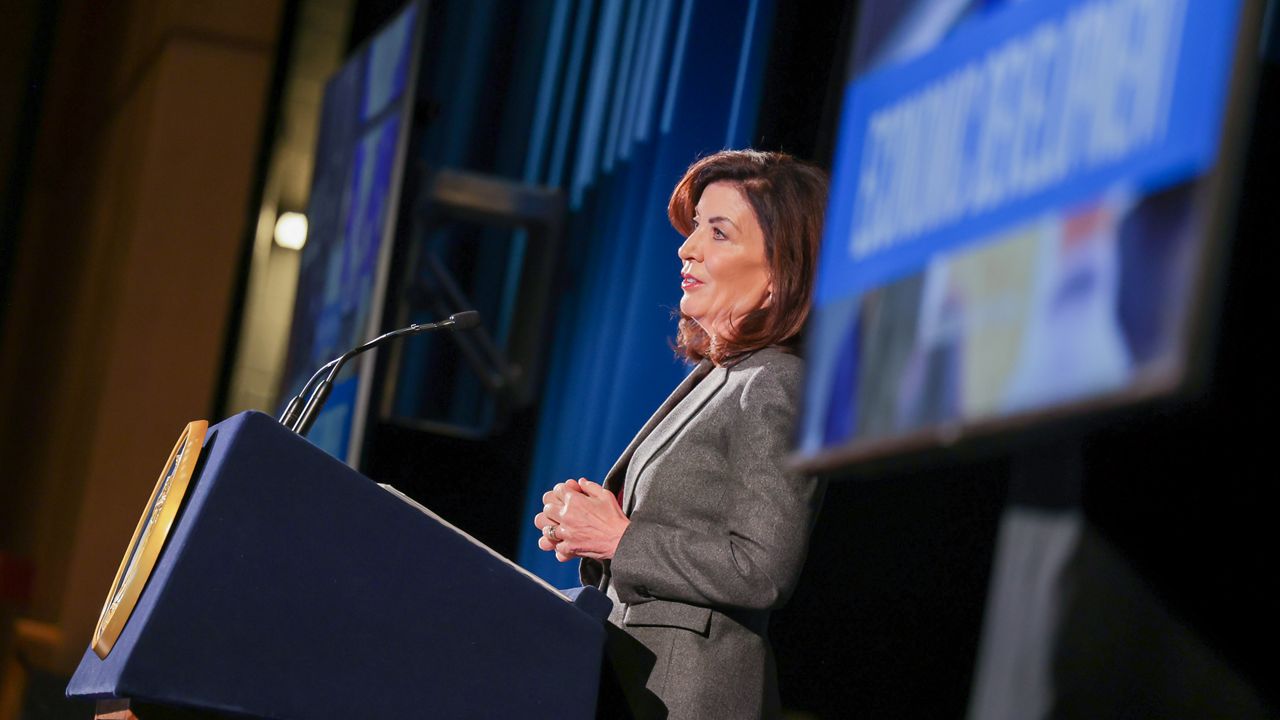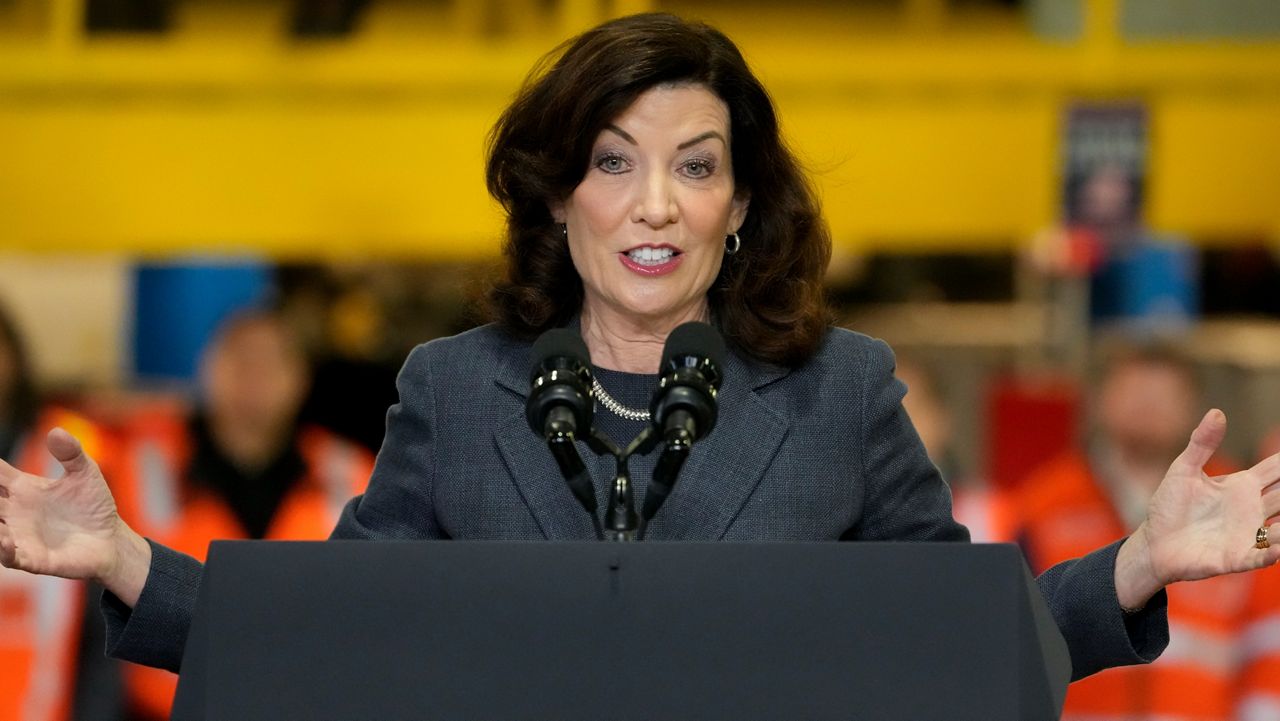Albany lawmakers and Gov. Kathy Hochul are coming down to the wire on their April 1 state budget deadline.
As they are negotiating a big-picture housing policy, there’s a bill that — if passed into law— would make it easier to build affordable housing on land owned by your local church, mosque or synagogue.
What You Need To Know
- The proposal is similar to ideas floated by other states facing housing shortages, like California and Washington, ut experts say, New York likely needs to undo years of restrictions on building before a dent is made
- Lawmakers are proposing a new bill that would let churches, mosques and synagogues statewide override local zoning laws if they agree to build affordable housing projects on their property
- Religious institutions would have to be exempt from the city’s often long and complicated public review process known as the Uniform Land Use Review Procedure, or ULURP
The proposal is similar to ideas floated by other states facing housing shortages, like California and Washington, but experts say New York likely needs to undo years of restrictions on building before a dent is made.
Lawmakers are proposing a new bill that would let churches, mosques and synagogues statewide override local zoning laws if they agree to build affordable housing projects on their property.
“Listen, I’m not comfortable that, the last two years, we haven’t done a big package on housing,” said the bill’s sponsor, Democrat Assemblyman Brian Cunningham of Brooklyn.
Reverend Evan Gray of Macedonia Baptist Church in Rockaway said he’s in favor, and he has the experience.
He developed church-owned land in 2005, creating a senior citizen living facility.
“There’s been a lot of development that has happened in this community, not all affordable, some mixed and things of that nature,” he told NY1 in an interview. “I’m more focused on affordability to help those who can move out of public housing.”
If signed into law, developments need to hit standards, such as mandatory mixed use or 100% affordable units, separate density limits pertaining to the city and jurisdictions outside the five boroughs and developers must undergo a state-run real estate training.
They would be exempt from the city’s often long and complicated public review process, known as the Uniform Land Use Review Procedure, or ULURP.
“The New York State Catholic Conference supports this legislation. Safe and affordable housing is a basic human right, and New York is facing a crisis on the affordability front. Catholic Charities has a long history as a leader in working with the state in developing such housing. This legislation is not a solution to the crisis on its own but it is one intriguing idea in beginning to address it,” said Dennis Poust, executive director of the NYS Catholic Conference, which represents all dioceses throughout the state.
But experts are issuing a word of caution.
“You will make it slightly easier to build 100% affordable housing in New York City and across the state. But the effects are going to be pretty small,” said David Schleicher, a professor at Yale Law School who specializes in housing and city planning.
“The city has a great deal of power to pass new zoning - change the restrictions of zoning. The state can do things to facilitate that or improve it in a lot of ways. But they have to believe that limiting or reducing regulations on development is good,” Schleicher added.
He said Mayor Eric Adams’ city planning department appears willing, by proposing zoning changes to office space, basement apartments and building height.
But those ideas need approval from the City Council.
Hochul faces similar legislative roadblocks.
“In the suburbs, what you have are hundreds of different jurisdictions, all of which have zoning power, and most of them are unwilling to allow new housing to be built,” said Eric Kober, a senior fellow at the Manhattan Institute think tank.
Those mandates helped torpedo the governor’s housing package last year.
Now, Hochul is negotiating for a tax abatement for developers.
“New rental housing is excessively taxed under state law. So there needs to be some compensating exemption or it just won’t be built. And so that needs to be reinstated,” added Kober.
It’s a position also shared by the Real Estate Board of New York. They argue that without the program formerly known as 421a, it’s too expensive to build.
Right now, negotiations appear to be at an impasse between real estate and building trade unions over wage standards on new development deals.
“You will never address a housing crisis that’s built up over 40 years in one legislative cycle. That’s like, not how these things work,” said Schleicher.
“The basic reason why we’ll never do so is that, that we’ve built up all sorts of limits on building and, and even if the state passed something like Hochul’s bill last year, which very salutary, would have been very solid for cities, we’ll come up with other reasons not to build,” he added.







